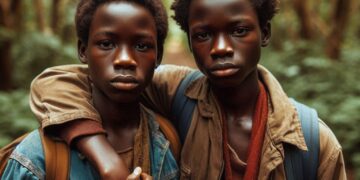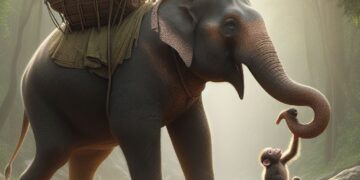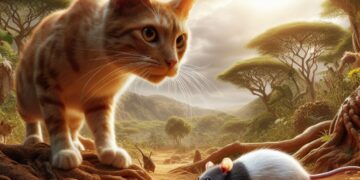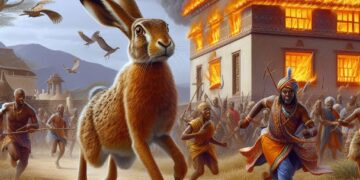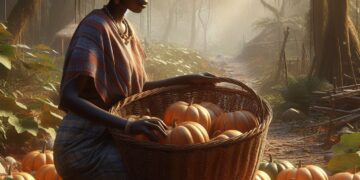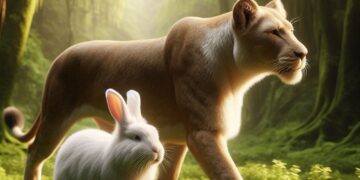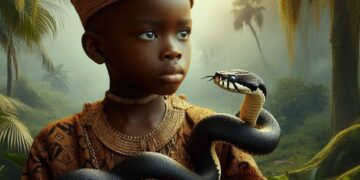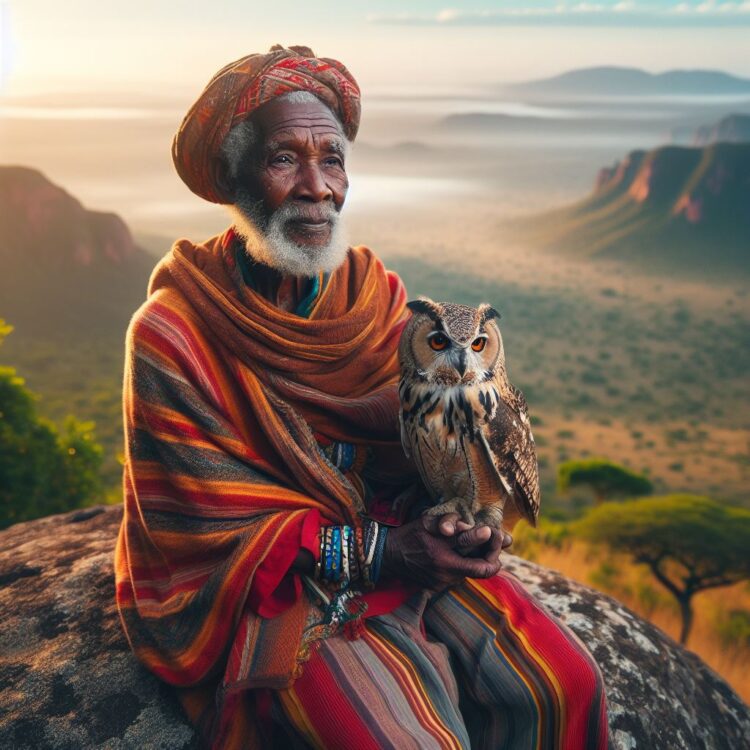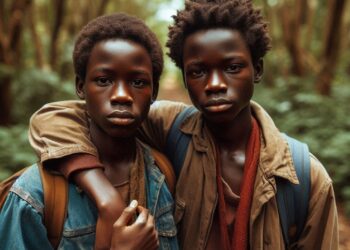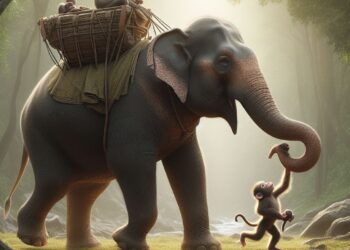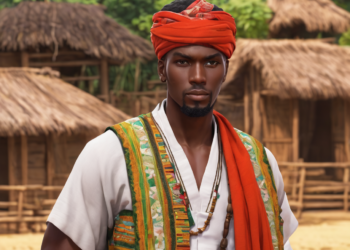In the days when the Kingdom of Buganda was thriving under the rule of the great Kabaka Mutesa I, there lived a cheerful man named Kato. He was a humble Muganda farmer, living in a small village called Ndejje, near the legendary Nakigalala tea estates. Kato was known throughout the region for his infectious laughter and warm spirit, qualities that made him a beloved figure among his fellow villagers.
One afternoon, as Kato tended to his coffee plants, he encountered an intriguing Arab trader named Ali. Ali had traveled from the distant coast of Zanzibar, bringing with him stories of far-off lands, bustling marketplaces in Cairo, and ancient wisdom from Persia. Ali’s tales of wise sages and hermits who had uncovered the secrets of the universe piqued Kato’s curiosity.
“Kato, have you ever considered seeking solitude to find true wisdom?” Ali asked one day, his voice rich with the promise of adventure.
Inspired by the tales, Kato decided to leave behind the lively life of Ndejje. He bid farewell to his friends and family, including his loving wife, Nakito, and set out for the serene hills of Kyankwanzi, known for their quietude and beauty. There, beneath a sprawling mvule tree, he constructed a small grass hut, determined to spend his days in solitude, seeking the wisdom of the Great Spirit.
Nakito, ever supportive of her husband’s quest, would leave a basket of fresh cassava and roasted groundnuts by a nearby stream for Kato to find each day. Kato, now isolated from the world, waited eagerly to uncover the universe’s secrets.
In the tree above Kato’s hut lived a wise old owl named Hoot, who had watched over the hills for many years. Curious about the newcomer, Hoot decided to speak with Kato.
“Who are you, and what brings you to my hill?” Hoot asked, his large eyes gleaming in the moonlight.
“I am Kato, and I’ve come here to live alone and learn the wisdom of the Great Spirit and the laws of the universe,” Kato replied.
“And what have you learned so far?” asked Hoot.
Kato sighed, “I haven’t learned anything yet, except that it is very hard to live alone and talk to no one. I am glad you came to see me today, perhaps you can give me some advice.”
The owl ruffled his feathers thoughtfully, amused by Kato’s predicament. “Certainly, I can give you advice,” Hoot said. “The best way to learn wisdom is to solve riddles. I will ask you a riddle every evening before I go out to hunt, and you can ponder it until the next evening.”
Hoot began with a riddle, “I have a wife; everything about her is good. What is my wife?”
Kato thought and thought all the next day, but when sunset came, he had no answer. The owl then revealed, “It is a cow. The milk is good, the meat is good, the skin is good, the horns are good, the bones are good. There is nothing bad in a cow.”
The next evening, Hoot asked, “I have a wife; she is very small, but all her children are enormous.”
Again, Kato spent the day thinking but could not solve the riddle. Hoot then explained, “It is a pumpkin seed. The seed is very small, but all the pumpkins are enormous.”
This pattern continued for many days. The owl would ask a riddle, and Kato, despite all his efforts, could never guess the answer. Finally, one day, Hoot asked, “Do you feel you are learning much about the Great Spirit and the wonderful laws of the universe?”
Kato sighed deeply. “I thought I would become wise, but I feel lonelier than ever.”
Hoot pondered for a moment before suggesting a new approach. “Let’s observe the world around us and learn from its mysteries instead of living in isolation!”
Excited by the idea, Kato and Hoot began exploring the lands around Kyankwanzi, from the fertile lands to the rivers and forests with exotic and local tree species and large savannah reserves with scattered trees mainly Muvule, Musizi and Mugavu.They observed the villagers going about their daily lives, watched the animals in the wild, and witnessed the beauty and challenges of nature.
One day, they came upon a heated argument between two fishermen at the shores of River Mayanja. The men were fighting over a missing bag of cowry shells, their tempers flaring as the sun set over the water. Kato and Hoot watched from a distance, concerned by the intensity of the dispute.
“What have we learned from this?” Hoot asked Kato.
Kato was bewildered. “I don’t understand.”
Hoot then explained, “Sometimes, the actions of one person can cause a chain reaction that affects others in unexpected ways.”
Inspired by Hoot’s wisdom, Kato decided to return to his village. He shared his experiences with the elders in Ndejje, and together, they mediated the fishermen’s dispute, restoring peace to the community.
From that day on, Kato was known as the wise judge of Ndejje. Whenever he faced a difficult decision, he would seek advice from his friend, Hoot, the wise old owl. His adventures continued, filled with laughter, learning, and the joy of friendship. As he gazed up at the stars each night, he knew that true wisdom came not from solitude, but from embracing life’s adventures with an open heart and a curious mind.

